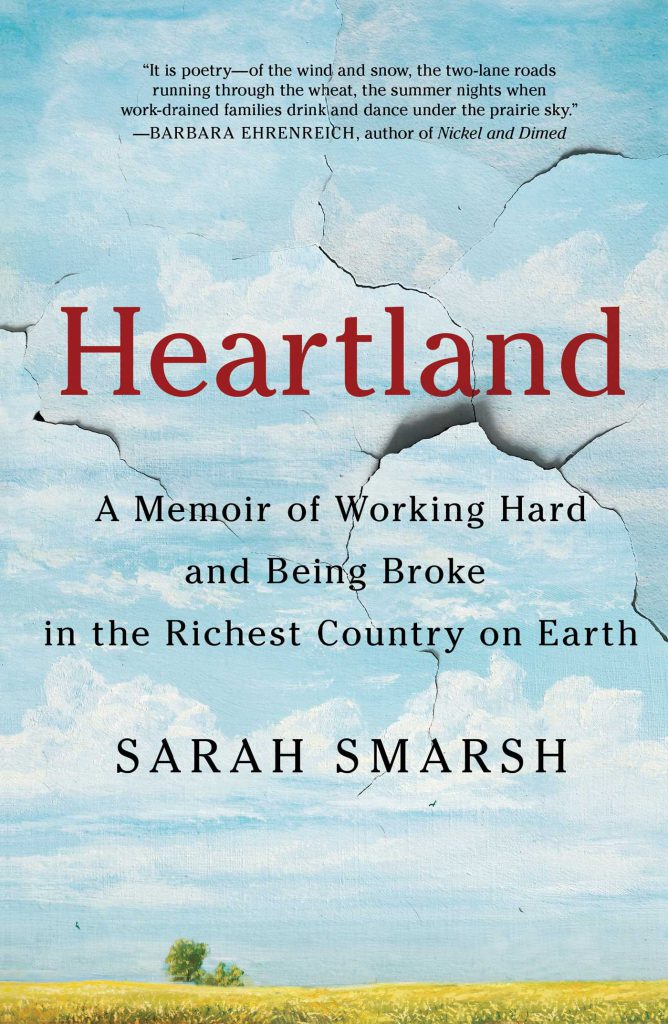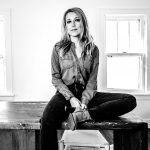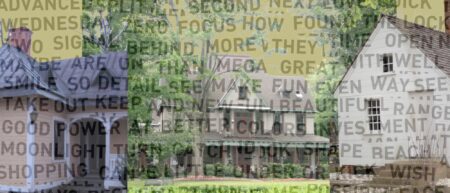 Back in 2002, long before journalists and analysts were obsessed with figuring out the American working class as some sort of Holy Grail to Trump’s ascendancy, Sarah Smarsh started writing a book from the center of it. Unlike many, she didn’t parachute into Flyover Country from rarefied coastal enclaves. She instead dug inward, patching together her family’s painful history of poverty in a country founded on the promise of equality. “We can’t really know what made us who we are,” she writes in her new book, Heartland: A Memoir of Working Hard and Being Broke in the Richest Country on Earth. “We can come to understand, though, what the world says we are.”
Back in 2002, long before journalists and analysts were obsessed with figuring out the American working class as some sort of Holy Grail to Trump’s ascendancy, Sarah Smarsh started writing a book from the center of it. Unlike many, she didn’t parachute into Flyover Country from rarefied coastal enclaves. She instead dug inward, patching together her family’s painful history of poverty in a country founded on the promise of equality. “We can’t really know what made us who we are,” she writes in her new book, Heartland: A Memoir of Working Hard and Being Broke in the Richest Country on Earth. “We can come to understand, though, what the world says we are.”
And the world, by and large, disregarded Smarsh and her family as white trash—dispensables from a monolithic cultural wasteland. She grew up in rural Kansas as a precocious bookworm at the top of her class, a product of generations of teen mothers and wheat farmers who mostly didn’t finish high school. While her family broke their backs harvesting wheat that fed the world, they were still required to prove their worth. And no matter how hard they worked, they still couldn’t break the cycle. As a result, every adult around her was addicted to something, she says, “handling the stress of it all when you don’t even know your life is stressful.” When Smarsh’s father suffered chemical poisoning and toxic psychosis on the job, he was more resigned than outraged, she writes, as if dying on the job was some type of birthright. “The American Dream,” she writes, “sometimes seems more like a ghost haunting our way of thinking than like a sacred contract worth signing toward some future.”
It wasn’t until college that Smarsh, the first in her family to get there, realized just how poor her family was. The concept of class didn’t exist on the Great Plains. “Poor” was a label her family refused to accept, for poverty in America is a failure of the soul—an “F” on the report card of life when all they did was try. Her family believed they got what they worked for. There’s some truth to that, Smarsh writes. But it’s not the whole truth. Heartland, longlisted for a 2018 National Book Award, is Smarsh’s attempt to get us closer to that whole truth—“an invitation to heal” in a country where poverty is an indictment on one’s character and ambition, not a consequence of systemic political and social failures.
“The distance between my world and my country’s understanding of it had been growing because so few people from my place ever ended up on a college campus and beyond to tell its stories,” she writes. “It’s a distance I wanted to make smaller.”
I first sat down with Sarah Smarsh in June to talk about bridging that distance. We continued our conversation two months later over the phone.
Lauren Bohn: You tweeted the other day that those looking for an explainer on the angry white male conservatives who voted for Trump will be disappointed by Heartland. In fact, no one from your family voted for him. When Trump was elected, where were you with writing the book? If Hillary were our president, would Heartland mean something else?
Sarah Smarsh: I signed with my publisher in May 2015. My original most ambitious and delusional idea was that I’d turn it in and it would be published in Fall 2016. When the 2016 election happened, as it turned out, I was still in the throes of writing and revising. Like many people in the midst of a creative project at that moment of national upheaval, I had a temporary crisis: Do I need to make my book about that, do I have to tack something on to specifically address this election?
After sitting with it, I decided, ‘we are in this maelstrom moment that is going to pass even though it doesn’t feel like it. I’m going to stay straight with the book I intended rather than be lifted in another direction by a political event.’
Having made the decision to not make this about Trump or let his name anywhere near my book was one thing—but the other challenge was keeping my ass in the chair and finishing this book when this political mess was happening. My journalism was an outlet for speaking that uncontainable frustration.
Shortly after the election I went through an opinion section of the Sunday edition of the New York Times and marked with a pink highlighter every place Trump’s name appeared. It looked like a sickly pox on the newspaper…like seventy or eighty occurrences on a two-page spread. That’s really his only goal, you know? Mission accomplished.
While my book is being published in the context of that political moment, I’m glad I started writing it long ago and I won’t let its contents be hijacked by an administration that doesn’t represent my family or have its support.
LB: Your pages are filled with the pain and trauma of your relatives as they struggle to get by. Was recording your family history a difficult experience?
SS: I got my first research grant to start piecing the parts of this puzzle together when I was twenty-one or twenty-two, a senior in college at the University of Kansas. So that was sixteen years ago at this point.
At that time, I thought I was writing a story about my grandmother’s life. She had raised me. She was a hero to me in many ways. I had it in my head my whole life that I’d write something about her. In my early twenties, I was finishing journalism school and embarking on the more mercenary application of writing as a reporter.
In terms of recording my family, that was really a convergence of the two halves of my writer’s self. The reporter in me was going outward and getting stories and the memoirist in me was going inward and getting reflections from my family about their very private experiences. What in spiritual terms you might call the divine masculine and the divine feminine. The process and the whole journey and the hell of it was trying to integrate those two writer selves.
It was as difficult on an emotional level as any memoir. No one had ever asked my family their preferences or their opinions on anything, let alone the meaning of their lives. But they respect someone doing their job so, when I sat down as a reporter with them, they understood and gave honest answers. While it was still very uncomfortable, it was a safe framework for me to say, “this is me doing my work as a writer.” They’re not people who go to therapy and spend a great deal of time reflecting. That’s not the culture or economic possibility of working class midwest America, especially rural.
But being humble or taciturn about one’s own story is not the same thing as refusing to tell the plain, hard truth. It turned out that if someone asked for it, they would and they did.
LB: You decided to the write the book to your imaginary daughter—ultimately, your higher self. How did that come about?
SS: It wasn’t contrived. It was a true experience and part of my psyche for most of my upbringing. One of those things so deep inside of you that you’re not really conscious of it. I think of it now as my higher self. It’s such an amorphous or esoteric experience to convey.
Toward the end of the writing process, there were pieces that weren’t clicking together. There would be these deeply personal passages where I’m recounting memories of my family and then more structural or cultural analysis and research. Something wasn’t flowing. It wasn’t quite gelling. Then I realized…that thing going on inside of me my whole life, I can reveal that and invite the reader into that. When I folded that inner dialogue with an imaginary daughter into the narrative, other pieces of the story clicked together and the reader was no longer at arm’s length.
LB: By the time your mother—a brilliant woman who could never realize her potential like so many women before her—started high school, she and her family had changed addresses forty-eight times. Your book on growing up in the heartland is really a book about mothers and daughters, if not a book on feminism.
SS: That wasn’t an overt intention. It was a natural reflection of the experience I had. Because I’m describing a family where marriages in poverty meet demises that almost always have to do with money, and sometimes, like in my family, with abuse…what children are left with are their moms. I was an outlier in that my father remained a strong presence in my life, but by and large my mother’s side of the family, which was mostly my experience, was overwhelmingly female. Strong women, to use a cliché that’s nonetheless accurate. I’ve written before in essays and journalistically that no one was using the word “feminism” in their world. It very much felt like an apolitical family culture, but now—and I don’t want to press my highly formalized education on my past, but I do see that they were living and breathing the tenets of feminism in a very pure way without having read any formative texts or knowing the academic language.
LB: At a time when we’re examining and recognizing our own layers of privilege, did you pay special mind to race while writing on the white working class?
SS: For understanding race in the United States, I defer to people of color, those who do not hold the social privilege within that identity experience and therefore often possess greater insight and wisdom. But as a white woman I also have a responsibility to address race head on, to explicitly state my privilege when I write about class—the experience of which is inextricably linked to with race, gender, and other socially constructed divides.
As with every other element of the book, though, I wasn’t out to make any type of argument about class as it relates to race. I just wanted to bear witness to what I experienced of it. What I can offer to that conversation is a story that involves simultaneous racial privilege and economic disadvantage. I hope that plain offering invites solidarity and unity among working people of all backgrounds.
LB: Do you have any concerns that you’re being pigeonholed or anointed a spokeswoman of sorts for the rural working class experience?
SS: I have a personal intention and commitment to never have such hubris. That said, it’s natural readers and viewers would look to someone as a voice for understanding a world from which precious few get to be heard. If you’re poor or working class, you’re not being heard. I have bridged that class divide and simultaneously reside from my home and speak from it. So I’m no spokeswoman, but I’m a storyteller who is living the story and place in real time, not looking back or from a distance, and I think that counts for something.
LB: How did your experience of being a fellow at Harvard this past year shape your thinking?
SS: By the time I went to Cambridge, the final draft was already turned in. It was a little surreal making final edits on a book about my broke-ass origins while occupying an extremely rarefied space like the Kennedy School. I have been practicing that, holding two separate experiences simultaneously, my whole professional life. But people at the Shorenstein Center were so supportive, it was a good reminder of something I already knew but is easy to forget—that unfair stereotypes are levied against all sorts of people, including those in places synonymous with elite privilege. The welcome I received at Harvard from down-to-earth people, people my low-income Kansas family would enjoy drinking a beer with, was humbling.
LB: Education was your means to chart another destiny for yourself. What does this book mean for education in America and the American Dream?
SS: I literally just turned in a story about public education. For me—in part because of my disposition as a bookish person who always liked school and was well-suited for that path—if I was going to get out of various cycles of poverty, then school would be my road.
I don’t want to suggest that book-learning is the great path to redemption for everyone. But public schools are precious to me as pillars of democracy where our children can converge, regardless of background or household income, and access opportunity and community and even a square meal. It kills me when I see affluent liberals scratching their heads and saying, “how can people be so ignorant!” Well, if there’s something to that criticism, you might look to the decades-long attack on public schools and, in particular, civics curricula.
Schools were such a saving grace for me. It’s not a book about education but growing up with a family lacking in resources and time for giving the things I craved. Public school was the only place I was going to get that.
So, when I see that being targeted by forces of privatization, I get angry. It’s the issue I was sent to be most fierce about, to stand at the school door in spirit and say to those who would harm public schools, “I will cut you if you come for these kids’ books.”
LB: Heartland is very much a personal and collective invitation to heal. Now that it’s out in the world, do you feel freed up to do other work?
SS: Since my childhood, I knew this book was coming. Holding that energy over so many years when you’re waiting tables to make ends meet or you can’t get an agent because no one is talking about class, it was hard. I didn’t write this book while sitting in a cabin for six months but, rather, when I could, for more than a decade, until a book deal allowed me to make it my primary focus and finish. When I mailed the final edits, I remember thinking—I don’t want to sound macabre—but I thought: If something happens to me, I got it out. I got the book out of me and now it exists as something real and much larger than myself.
LB: Any advice for writers and artists who don’t have the means and can’t find them?
SS: Stay true. I can’t just say keep at it and the resources will come because that doesn’t always happen. Staying in the fight as a writer doesn’t mean your ideas and stories will be picked up and championed. It does mean you’ll have a chance. Somewhere your editorial counterpart is looking for your story. If she’s going to find your voice, you’ll have to be sending it out like a beacon.
 SARAH SMARSH has reported on socioeconomic class, politics and public policy for the Guardian, The New York Times, the New Yorker and Harper’s online, VQR, Pacific Standard, Longreads, Guernica, the Economic Hardship Reporting Project, and many others. She was a Shorenstein Fellow at the Shorenstein Center on Media, Politics and Public Policy at Harvard University’s John F. Kennedy School of Government during the spring 2018 semester. Her essays appear in Tales of Two Americas: Stories of Inequality in a Divided Nation (Penguin Books, September 2017) and Scratch: Writers, Money, and the Art of Making a Living (Simon & Schuster, January 2017).
SARAH SMARSH has reported on socioeconomic class, politics and public policy for the Guardian, The New York Times, the New Yorker and Harper’s online, VQR, Pacific Standard, Longreads, Guernica, the Economic Hardship Reporting Project, and many others. She was a Shorenstein Fellow at the Shorenstein Center on Media, Politics and Public Policy at Harvard University’s John F. Kennedy School of Government during the spring 2018 semester. Her essays appear in Tales of Two Americas: Stories of Inequality in a Divided Nation (Penguin Books, September 2017) and Scratch: Writers, Money, and the Art of Making a Living (Simon & Schuster, January 2017). LAUREN BOHN is a Chicago and Istanbul-based journalist and social entrepreneur. She covers issues of social justice, and has reported from more than 20 countries for premier publications including Foreign Policy, where she was one of the first female columnists, the New Yorker, CNN, The New York Times, AP, TIME, and Newsweek. Bohn is the co-founder of two social ventures: Foreign Policy Interrupted and SchoolCycle. Foreign Policy Interrupted amplifies female voices in foreign policy, and SchoolCycle is a United Nations Foundation campaign to provide bikes for adolescent girls to get to school. Bohn is also a New America fellow in International Security and Atlantic Council Millennium fellow. She was previously a Fulbright fellow in Egypt.
LAUREN BOHN is a Chicago and Istanbul-based journalist and social entrepreneur. She covers issues of social justice, and has reported from more than 20 countries for premier publications including Foreign Policy, where she was one of the first female columnists, the New Yorker, CNN, The New York Times, AP, TIME, and Newsweek. Bohn is the co-founder of two social ventures: Foreign Policy Interrupted and SchoolCycle. Foreign Policy Interrupted amplifies female voices in foreign policy, and SchoolCycle is a United Nations Foundation campaign to provide bikes for adolescent girls to get to school. Bohn is also a New America fellow in International Security and Atlantic Council Millennium fellow. She was previously a Fulbright fellow in Egypt.

